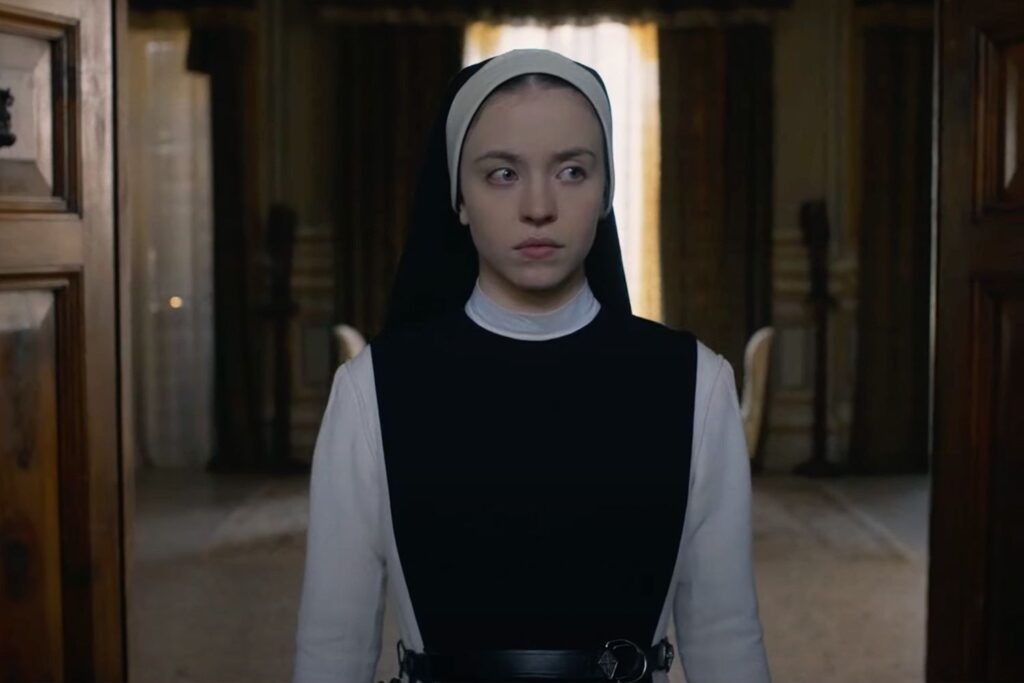Immaculate: Snacc of All Trades, Master of Nun

Until she cracked the box-office code with Anyone But You (still in theaters, over three months later!), Sydney Sweeney was best known for her television work: as a tempestuous sexpot on Euphoria, as a privileged troublemaker on The White Lotus, as a mentally unstable cellmate on Sharp Objects. Even as her star ascended and she appeared in more movies, the pandemic and studio hesitation conspired to prevent her from arriving on the actual big screen, as streamers gobbled up solid pictures like Reality and Big Time Adolescence… and also The Voyeurs, a spiky little thriller that dropped on Amazon a few years ago with little fanfare. Strictly speaking, The Voyeurs wasn’t a good movie, but it did showcase Sweeney’s ability to be both exotic and innocent; it also afforded its director, Michael Mohan, the opportunity to ape Brian de Palma. Now, Mohan and Sweeney have reteamed for Immaculate, a horror flick that contemplates a different sort of lusty possession.
As with The Voyeurs, Immaculate isn’t very good, but it isn’t without its guilty pleasures. As a creature of pure genre, it offers a handful of images—a watchful eye peering through a crevice to witness a sacrilegious ritual; a distant figure launching herself from a background tower—that contain a certain elemental power. The opening scene finds a young nun (Simona Tabasco, also from The White Lotus) trying to escape from an Italian convent that might as well be a medieval castle; as she fumbles frantically with the keys at the wrought-iron gate, a quartet of elders inexorably stalk toward her, like four Darth Vaders in habits. There’s no ambiguity or complexity here, just primordial terror. Read More




